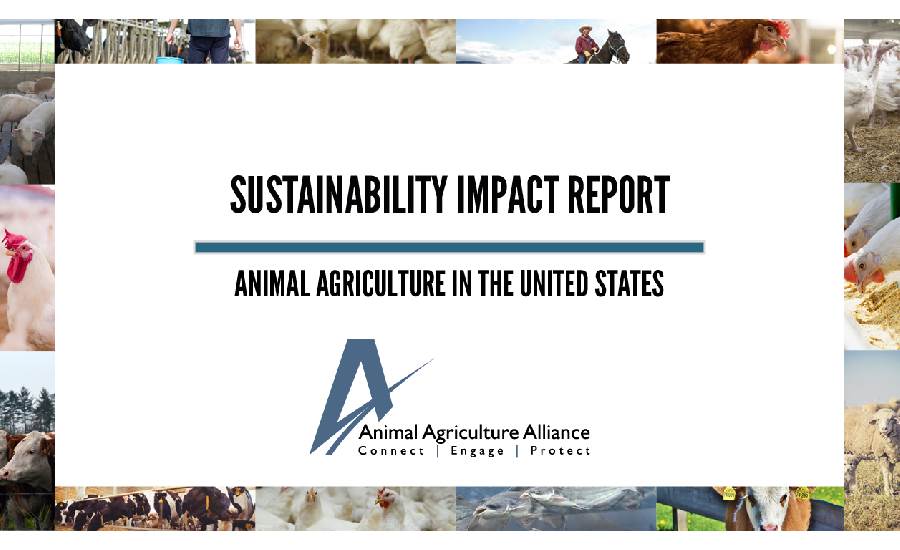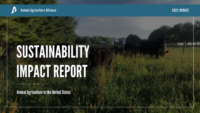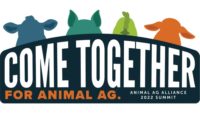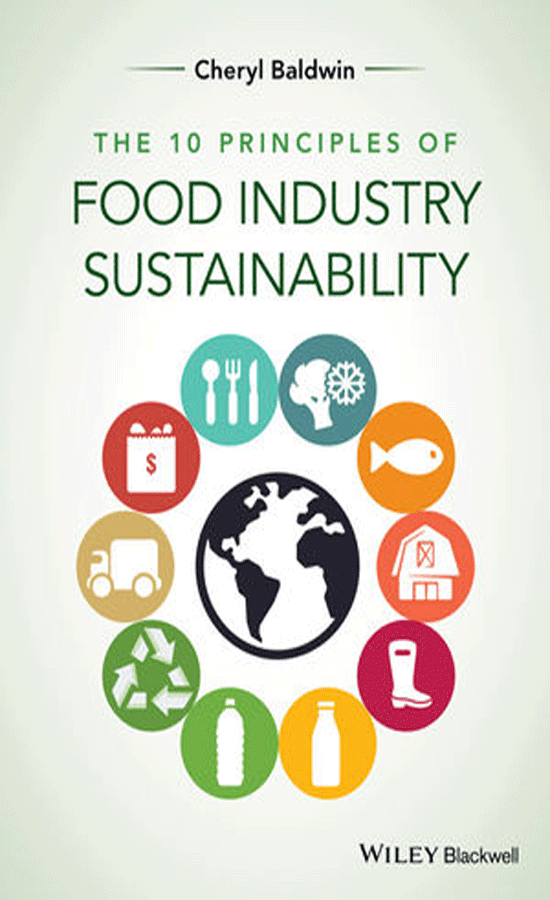Animal Agriculture Alliance’s updated Sustainability Impact Report highlights continued commitment and improvement

The Animal Agriculture Alliance released its updated “Sustainability Impact Report” in celebration of Earth Day and the animal agriculture community’s commitment to continuous improvement in environmental stewardship, animal care, responsible antibiotic use, food safety and nutrition. To access the report, go to https://animalagalliance.org/issues/sustainability.
The 33-page report covers nine sectors of animal agriculture: dairy, beef, veal, pork, chicken, turkey, egg, sheep and aquaculture. “Earth Day is a great opportunity to appreciate our planet and our environment, but for farmers and ranchers, every day is like Earth Day,” said Kay Johnson Smith, Alliance president and CEO. “As showcased in our updated Sustainability Impact Report, the animal agriculture community continues to make advancements in ongoing efforts to reduce its environmental footprint while continuing to safely, efficiently and affordably produce the nutrients our bodies need to function and feel our best.”
The report contains valuable insights into animal agriculture’s dedication to continuous improvement, including the following environmental stewardship highlights:
- Agriculture accounts for roughly 10 percent of U.S. GHG emissions while livestock production is only 4 percent.
- The dairy community contributes less than 2 percent of total U.S. greenhouse gas emissions while supplying the protein requirements of 169 million people, calcium requirements of 254 million people, and energy requirements of 71.2 million people.
- The beef community, through continued sustainability efforts and improved resource use, has reduced emissions per pound of beef produced by more than 40 percent while also producing more than 66 percent more beef per animal between 1961 and 2018.
- Pig farmers are continually decreasing their carbon footprint through the adoption of renewable energy sources and some farms are now carbon neutral or negative.
- Over 95 percent of poultry litter is recycled and reused as organic fertilizer to grow crops.
- More than 40 percent of ingredients used in animal feed are recycled byproducts from other industries.
Sessions at the Alliance’s 2021 Virtual Summit will address many of the topics presented in the Sustainability Impact Report, highlighting ways to position animal agriculture as a path forward to climate neutrality, discuss animal protein in a sustainable food system, and more! Preconference webinars start Wednesday, April 28 and will be held each business day leading up to the main event set for May 5 and 6. Save 15 percent on registration through Friday, April 23 using discount code EARTHDAY. Register here!
Source: Animal Agriculture Alliance
Looking for a reprint of this article?
From high-res PDFs to custom plaques, order your copy today!






